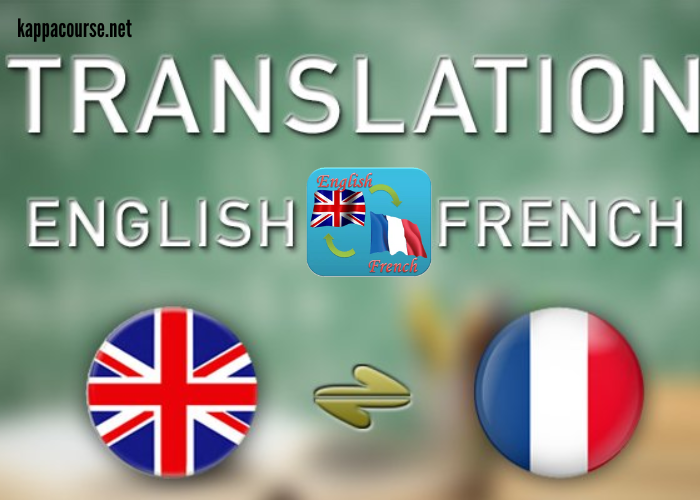The path from English to French, two of the world’s most spoken languages, is a journey through history, culture, and the nuances of linguistic structures. Whether you’re a student, professional, or a curious traveler, understanding the intricacies of translating between these languages can prove invaluable.
In this comprehensive guide, we’ll explore the facets of the English to French translation, its importance, challenges, and the tools that simplify this endeavor.
Historical Overlap of English and French
The history of England and France is intertwined, with periods of conflict and cooperation. The Norman conquest in 1066 brought a significant influence of French on the English language. Words related to law, art, literature, and science in English have French origins, making translation between the two a fascinating historical exploration.
Importance of English to French Translation
Global Communication: French is spoken by over 220 million people worldwide. Translating English content to French opens doors to vast audiences in Europe, Africa, and North America.
Business Expansion: For businesses, translations cater to the French-speaking market, ensuring products and services resonate with cultural and linguistic nuances.
Cultural Exchange: Literature, cinema, and art transcend borders when translated, fostering mutual appreciation and understanding.
Nuances and Challenges
Idiomatic Expressions: Phrases like bite the bullet in English may not have a direct counterpart in French. Translators often need to find culturally relevant alternatives.
Tonal Variations: French, with its formal (vous) and informal (tu) address, poses challenges in maintaining the tone and intent of the original English text.
Grammatical Structures: The placement of adjectives, use of gender, and verb conjugations differ significantly between the languages.
The Role of Technology in Translation
Modern AI-powered tools, like Google Translate and DeepL, have revolutionized the English to French translation. Leveraging neural networks, these tools offer more contextually accurate translations. However, human oversight remains essential for nuanced content.
Professional Translators vs. Automated Tools
While AI tools are efficient for quick translations, professional translators bring cultural sensitivity, context, and an understanding of idiomatic expressions. For official documents, literature, or business proposals, human expertise remains irreplaceable.
Tips for Effective English to French Translation
Understand the Context: Know the purpose of the translation. Is it for a business proposal, a novel, or a casual blog?
Stay Updated: Language evolves. New slang, terminologies, or phrases emerge, and a good translator remains abreast of these changes.
Proofreading: A crucial step that helps in eliminating errors and ensuring the translation aligns with the context.
Learning Translation: A Career Perspective
The demand for bilingual professionals is on the rise. Translation isn’t just about language proficiency; it’s about understanding two cultures. Courses and certifications, like the ones offered by the American Translators Association, can provide a structured pathway for aspiring translators.
Famous English to French Translations
Literary masterpieces like To Kill a Mockingbird by Harper Lee or 1984 by George Orwell have been translated into French, allowing a wider audience to appreciate these classics.
The Future of English to French Translation
With the advent of augmented reality (AR) and virtual reality (VR), real-time translations will become commonplace. Imagine wearing AR glasses that instantly translate English signboards into French!
The Art of Literary Translation
Literary translation is a realm where the translator becomes not just a conveyer of words but also a guardian of the author’s voice and style. Translating literary works, be it novels, poetry, or plays, requires a deep understanding of cultural contexts, metaphors, and the essence of the original work. It’s a labor of love that allows readers across the French-speaking world to savor the beauty of English literature.
Localization vs. Translation
Localization goes beyond translation. It involves adapting content to the specific cultural norms and preferences of the target audience. For businesses, this means tailoring product descriptions, user interfaces, and marketing materials to resonate with French consumers.
English to French Translation in a Digital World
The digital landscape has transformed the way we translate. Online marketplaces, e-commerce websites, and social media demand real-time translations. Mobile apps and websites with language-switching features have made English to French translation a seamless part of everyday life.
Language Preservation and Revival
While translation is primarily about bridging languages, it can also play a role in preserving and reviving endangered languages. By translating documents and literature into these languages, we ensure their survival in the digital age.
The Art of Subtitling and Dubbing
In the world of cinema and television, English to French translation is an art in itself. Subtitles and dubbing bring English-language entertainment to French-speaking audiences while maintaining the original essence and emotion.
The Cultural Exchange
Translation is a two-way street. Just as English content reaches French audiences, French literature, art, and culture become accessible to the English-speaking world. Translation serves as a gateway to cross-cultural appreciation and enrichment.
Challenges in Modern Translation
In the digital age, the demand for rapid translations can compromise quality. Translators must balance speed with precision, using their linguistic skills to produce accurate and culturally relevant translations under tight deadlines.
The Human Touch in Translation
While AI has made incredible strides in machine translation, it still falls short in capturing the nuances of human language and culture. The human translator remains essential for preserving context, tone, and the unique essence of the source material.
Multilingualism and Global Citizenship
As the world becomes more interconnected, multilingualism is increasingly viewed as a valuable skill. Being proficient in both English and French opens doors to international opportunities and fosters a sense of global citizenship.
Translation and Diplomacy
In international diplomacy, translation plays a pivotal role in negotiations, treaties, and international agreements. Accurate translation is crucial to avoid misunderstandings that could have far-reaching consequences.
The Future Beyond Language Barriers
The future of English to French translation is promising. As technology advances, we can expect more sophisticated AI tools that enhance the capabilities of human translators, making cross-cultural communication more accessible and efficient.
Conclusion
The journey from English to French isn’t just about replacing words. It’s about transporting emotions, intentions, and nuances from one rich linguistic tapestry to another. In our globalized world, this translation acts as a bridge, fostering communication, understanding, and unity. As technology advances and the world becomes even more interconnected, the significance of this linguistic bridge will only amplify.



